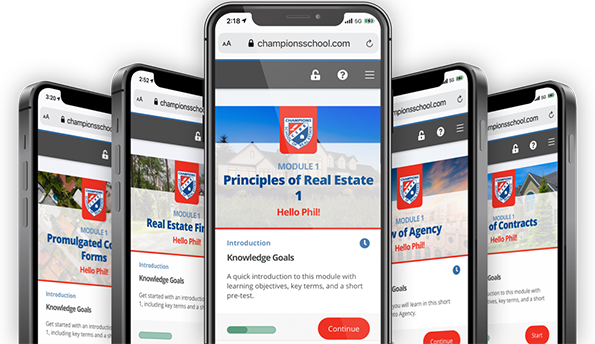
Real estate and stocks are both excellent investment vehicles, but each has its own set of advantages and disadvantages. Here are the main differences between stocks, real estate, and stocks: Liquidity. If you are looking for a long-term passive income stream, investing in real estate might be a better choice. Real estate can also offer a passive income stream, as well as substantial appreciation. Stocks, on the other hand, are subject to market, economic, and inflation risks. Buying stocks does not require a large cash injection, but they can be bought and sold easily.
Profits
Real estate investing has many benefits. For starters, real estate can create cash flow. Cash flow is the money that is left over after expenses are paid. Rental income will help you offset expenses and put money in your pocket. Your cash flow will increase the longer you keep a property. There are a number of tax deductions and tax breaks available for real estate. These tax breaks allow you to deduct reasonable expenses related both to ownership and operation.
Investing in real property offers the flexibility many investors require. You can build up a portfolio gradually and then use the rental income as an additional source of income. You can also make fix-and flop profits your main source for income. You also have the freedom to manage your property according to your own schedule. You're your own boss. No one can dictate your hours or limit your salary when you work in this field.

Risks
It is important you know the differences when comparing the risks of investing in real estate vs stocks. Real estate is a much more stable investment than stocks. Real estate has a lower risk of capital loss because the land you own is collateral for your initial investment. Stocks on the other side are more liquid and you can cash out anytime. Stocks can also produce income via dividends. Investors should be aware that stock prices can fluctuate and could cause investors to make emotional decisions.
In addition to being higher risk, you will have to wait for your return to see a positive impact. Stocks return an average 10% per year while real estate returns between three and four percent. The annual return on real estate is 20% if you pay at least 20% down on the property. This is significantly higher than stock returns. Additionally, it is not easy to find properties that are of high value and then make a profit by selling them for less than the price you paid. You could also face a tax penalty for selling your property within a short time frame, which is higher than the normal return of the real estate market.
Liquidity
The ease an investor can convert his investment into cash is called liquidity. Stocks are more liquid that real estate investments as they can be traded during normal market hours. It may take some time to sell all of your stock positions, but investors have the ability to get their money whenever and wherever they like. In contrast, real estate investments are not so liquid, and it may take many years for them to appreciate in value.
Another benefit of investing in real property is the possibility of earning income, instead of capital gains. This makes it easier to do so. Inflation does not affect the income component. Investors are able to use their real estate profit sooner. Another benefit of investing in real estate is that it is less volatile. Withdrawals from this type of investment are more secure, and less likely to be affected short-term volatility. No matter what your preferences are, there is a strategy to suit you.

Lage
Direct investment in real estate isn't for everyone. However, if you want to build a balanced portfolio, you should consider real estate along with stocks. The stock market's simplicity makes it easy to participate in and manipulate. Also, investing directly in real estate is far less risky and more profitable than investing in index funds. Here are some tips to help make informed decisions about real estate investing.
FAQ
How long does it take for a mortgage to be approved?
It all depends on your credit score, income level, and type of loan. It generally takes about 30 days to get your mortgage approved.
Is it possible to get a second mortgage?
Yes. However, it's best to speak with a professional before you decide whether to apply for one. A second mortgage is often used to consolidate existing loans or to finance home improvement projects.
How much money will I get for my home?
It all depends on several factors, including the condition of your home as well as how long it has been listed on the market. The average selling price for a home in the US is $203,000, according to Zillow.com. This
What should you consider when investing in real estate?
The first thing to do is ensure you have enough money to invest in real estate. You can borrow money from a bank or financial institution if you don't have enough money. It is important to avoid getting into debt as you may not be able pay the loan back if you default.
You must also be clear about how much you have to spend on your investment property each monthly. This amount should include mortgage payments, taxes, insurance and maintenance costs.
Also, make sure that you have a safe area to invest in property. It would be a good idea to live somewhere else while looking for properties.
Is it possible to quickly sell a house?
It may be possible to quickly sell your house if you are moving out of your current home in the next few months. But there are some important things you need to know before selling your house. First, find a buyer for your house and then negotiate a contract. Second, prepare your property for sale. Third, your property must be advertised. You should also be open to accepting offers.
How do I fix my roof
Roofs can become leaky due to wear and tear, weather conditions, or improper maintenance. Minor repairs and replacements can be done by roofing contractors. Contact us for further information.
Statistics
- Some experts hypothesize that rates will hit five percent by the second half of 2018, but there has been no official confirmation one way or the other. (fortunebuilders.com)
- 10 years ago, homeownership was nearly 70%. (fortunebuilders.com)
- Private mortgage insurance may be required for conventional loans when the borrower puts less than 20% down.4 FHA loans are mortgage loans issued by private lenders and backed by the federal government. (investopedia.com)
- This means that all of your housing-related expenses each month do not exceed 43% of your monthly income. (fortunebuilders.com)
- When it came to buying a home in 2015, experts predicted that mortgage rates would surpass five percent, yet interest rates remained below four percent. (fortunebuilders.com)
External Links
How To
How to Manage a Rental Property
While renting your home can make you extra money, there are many things that you should think about before making the decision. We will show you how to manage a rental home, and what you should consider before you rent it.
If you're considering renting out your home, here's everything you need to know to start.
-
What are the first things I should consider? Consider your finances before you decide whether to rent out your house. If you have any debts such as credit card or mortgage bills, you might not be able pay for someone to live in the home while you are away. Your budget should be reviewed - you may not have enough money to cover your monthly expenses like rent, utilities, insurance, and so on. It may not be worth it.
-
How much does it cost for me to rent my house? Many factors go into calculating the amount you could charge for letting your home. These include things like location, size, features, condition, and even the season. Prices vary depending on where you live so it's important that you don't expect the same rates everywhere. Rightmove has found that the average rent price for a London one-bedroom apartment is PS1,400 per mo. This means that if you rent out your entire home, you'd earn around PS2,800 a year. This is a good amount, but you might make significantly less if you let only a portion of your home.
-
Is it worth it? There are always risks when you do something new. However, it can bring in additional income. Be sure to fully understand what you are signing before you sign anything. Renting your home won't just mean spending more time away from your family; you'll also need to keep up with maintenance costs, pay for repairs and keep the place clean. Make sure you've thought through these issues carefully before signing up!
-
Are there any advantages? So now that you know how much it costs to rent out your home and you're confident that it's worth it, you'll need to think about the advantages. There are many reasons to rent your home. You can use it to pay off debt, buy a holiday, save for a rainy-day, or simply to have a break. It's more fun than working every day, regardless of what you choose. You could make renting a part-time job if you plan ahead.
-
How do I find tenants? Once you decide that you want to rent out your property, it is important to properly market it. Online listing sites such as Rightmove, Zoopla, and Zoopla are good options. Once potential tenants contact you, you'll need to arrange an interview. This will help you assess their suitability and ensure they're financially stable enough to move into your home.
-
How do I ensure I am covered? If you're worried about leaving your home empty, you'll need to ensure you're fully protected against damage, theft, or fire. Your landlord will require you to insure your house. You can also do this directly with an insurance company. Your landlord may require that you add them to your additional insured. This will cover any damage to your home while you are not there. This does not apply if you are living overseas or if your landlord hasn't been registered with UK insurers. In such cases, you will need to register for an international insurance company.
-
If you work outside of your home, it might seem like you don't have enough money to spend hours looking for tenants. You must put your best foot forward when advertising property. It is important to create a professional website and place ads online. Additionally, you'll need to fill out an application and provide references. Some prefer to do it all themselves. Others hire agents to help with the paperwork. Interviews will require you to be prepared for any questions.
-
What should I do once I've found my tenant? If you have a contract in place, you must inform your tenant of any changes. You may also negotiate terms such as length of stay and deposit. You should remember that although you may be paid after the tenancy ends, you still need money for utilities.
-
How do you collect rent? You will need to verify that your tenant has actually paid the rent when it comes time to collect it. If not, you'll need to remind them of their obligations. You can subtract any outstanding rent payments before sending them a final check. You can call the police if you are having trouble getting hold of your tenant. The police won't ordinarily evict unless there's been breach of contract. If necessary, they may issue a warrant.
-
What are the best ways to avoid problems? Renting out your house can make you a lot of money, but it's also important to stay safe. Install smoke alarms, carbon monoxide detectors, and security cameras. Check with your neighbors to make sure that you are allowed to leave your property open at night. Also ensure that you have sufficient insurance. You should never allow strangers into your home, no matter how they claim to be moving in.